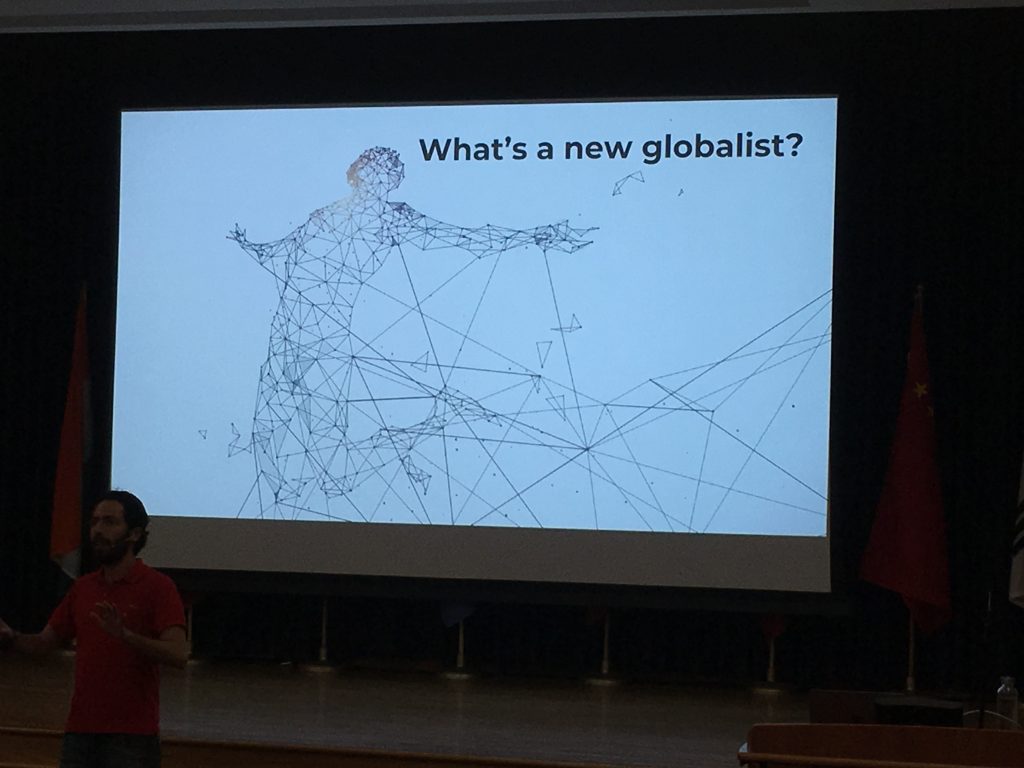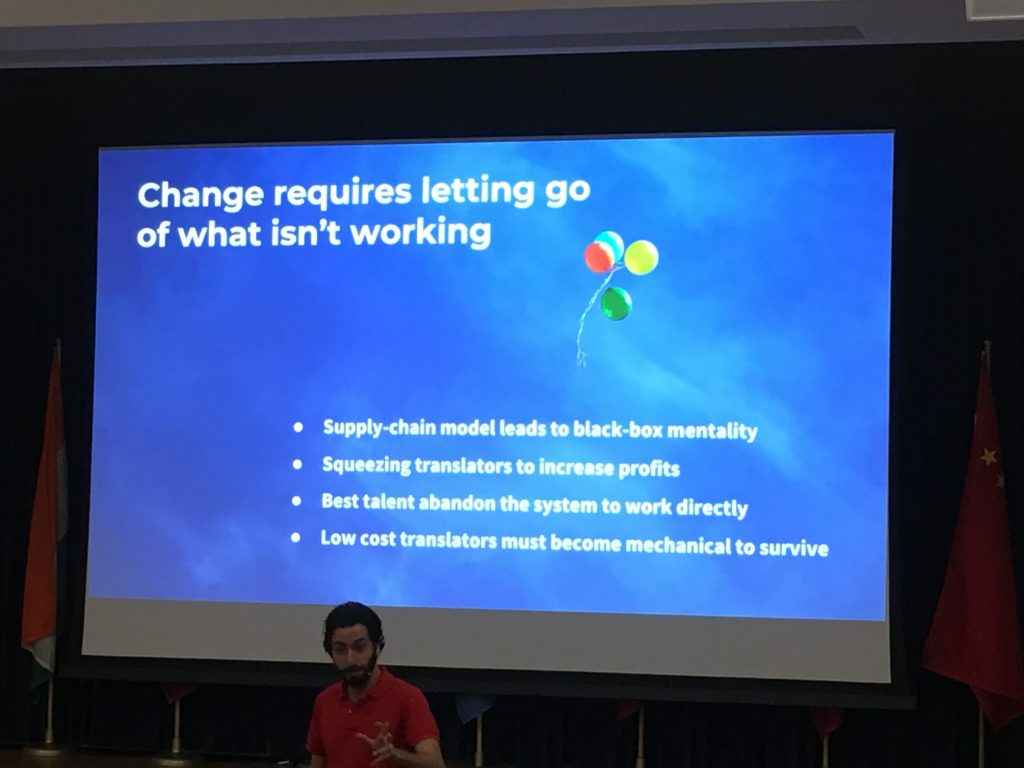
The New Oxford American Dictionary defines paradigm as “a typical example or pattern of something; a model.” I have to admit, though the term paradigm exists in my vocabulary, it is not a word that I hear being used often, nor do I use it myself. However, when I think of the word paradigm, another term that comes to mind is “status quo.” The New Oxford American Dictionary defines this term as “the existing state of affairs, especially regarding social or political issues.” Status quo is a term I’m very familiar with. In my opinion, it often carries negative undertones and is used to describe not just a state of affairs, but a state of affairs at sub-par levels that are either unacceptable or barely meets standards. As it is not an ideal state of affairs, one must ask the following questions: what brings it into being? Is it possible to change it? What steps are necessary to bring about this change?
Generally, in a given culture or society when a word exists for a certain concept, that can be seen as proof that that concept is very prevalent in that culture or society. The fact that the term status quo exists in our culture, it makes me believe that not just a select few but a large majority of people spend at least some of their time thinking of the current state of affairs, and perhaps even spend some time analyzing whether it is good or bad. I will even go so far as to say that there are probably throngs of people spending time and energy contributing to the status quo all without even realizing it.
Ideally, those taking the time to analyze the status quo and who reach the conclusion that change needs to happen will be spurred into action. However, more likely than not, these individuals will fall short and settle into the status quo themselves. Why? Because it’s human nature. Humans are social beings. We seek acceptance from all the social circles we belong to: family, friends, co-workers. The majority of people in their quest for acceptance will not question the system but will rather mold themselves to fit in, hence no change occurs. I am just as guilty of this myself. I wanted to fit in so badly with my peers in grade school, then in undergrad, then in the workplace. Now, whether I was ever successful is another question. I don’t think I was ever successful in being part of any “in-crowd,” so I think that’s why I’ve always been able to view this issue from a different angle.

Am I happy or okay with the status quo? No, not really. When I was younger, I didn’t fit in and I was ridiculed by my peers constantly. As I got older and began my undergraduate studies, being accepted or “fitting in” became less important to me, but that didn’t stop me from still trying to find my place amongst the social circles around me. Then I entered the workplace and even there I tried to get others to like me. Even though there existed within me this strong desire to change the status quo, or at the very least not give in to it and not mold myself to fit into it, I still ended up giving myself undue amounts of stress as a result of trying to win others’ approval. Why did I give in? Because it beat the alternative: having no friends, feeling isolated, and therefore adding to the high levels of stress already existent from the demands of the job. Plus, I needed the job. Acting in such a way that might jeopardize my job was not something I felt comfortable doing, thus I conformed, didn’t question the system, and continued to allow myself to be miserable (at least until I quite that job).
So then this begs the question: what options does one like myself have? Actually, better question: are there other options or are the choices limited to just option A and option B, conform or not conform? I’d like to believe that there’s at least a third option, an option C: be yourself. Don’t try so hard to fit into any mold, but also don’t purposely fight to go against the tides. Just be you. If you fit in, great! If you don’t, no worries. If you are an idealist like me, hoping to bring about some positive change in the world, stick to your guns. Maybe, just maybe, if you stick to your guns long enough, enough like-minded people will come along and join you in the cause. If this moment happens, no matter what, keep moving forward and keep fighting. I say this because it is my guess that it won’t be enough to gather enough like-minded idealists; patience, strength, courage, all of these wonderful traits that game-changers often carry will be the things to keep you moving toward the end game. As the saying goes: Rome wasn’t built in one day, and the status quo won’t change overnight.


